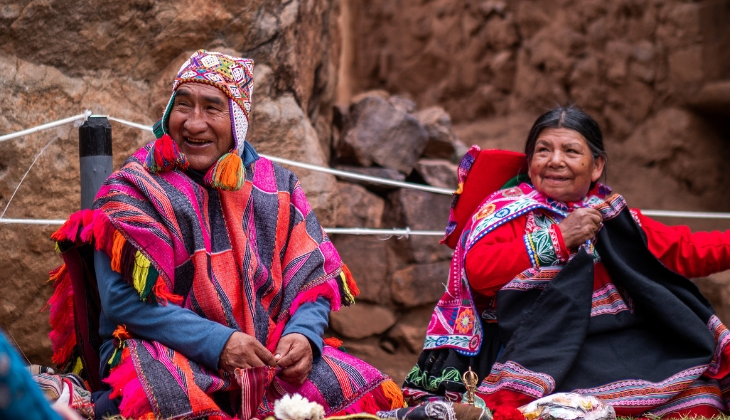
In a world characterized by constant hustle and a yearning for deeper fulfilment, the pursuit of inner peace has taken center stage. Within this quest, the convergence of Tibetan Buddhism, Jungian psychology, and Balinese wisdom carries profound significance. Tibetan Buddhism offers spiritual teachings focused on compassion, mindfulness, and enlightenment, providing a pathway to inner peace. Jungian psychology, on the other hand, delves into the depths of the human psyche, offering insights into personal growth and the integration of different aspects of ourselves. Bali, with its rich spiritual heritage, rituals, and connection with nature, becomes a sanctuary for seekers on a transformative pilgrimage to discover inner peace and harmony.
In this blog post, we explore the transformative power of this convergence, unraveling the depths of Tibetan Buddhism, Jungian psychology, and Balinese traditions. Join us in September 2023 for our journey, Sacred Healing in Java and Bali with Dr. Miles Neale and Gesha Tenzin Zopa: A Pilgrimage to the Mystical Islands of Indonesia as we uncover the profound wisdom and practices that guide us towards a more meaningful and harmonious existence.
Tibetan Buddhism and Pilgrimage to Inner Peace
Tibetan Buddhism stands as a profound and vibrant spiritual tradition that has captured the hearts and minds of countless individuals seeking a deeper understanding of life and inner peace. Rooted in the teachings of Gautama Buddha, Tibetan Buddhism has evolved into a unique and distinct path with its own rich tapestry of principles and practices.

At the heart of Tibetan Buddhism lies the fundamental principle of compassion, known as “bodhichitta.” This concept emphasizes the cultivation of a compassionate and altruistic attitude towards all beings, recognizing the interconnectedness of life. Compassion is not merely an intellectual understanding but a lived experience that extends to both oneself and others.
Central to Tibetan Buddhist practices is the art of meditation. Meditation serves as a gateway to self-discovery, allowing practitioners to cultivate mindfulness, inner calm, and insight. Through various meditation techniques, such as breath awareness, visualizations, and mantra recitation, individuals can develop a heightened sense of awareness, overcome mental afflictions, and attain states of profound clarity and serenity.
Jungian Psychology and Spiritual Growth
Jungian psychology, developed by renowned Swiss psychiatrist Carl Jung, offers a unique perspective on the human psyche and its connection to spirituality. While often associated with the field of psychology, Jung’s teachings and concepts hold profound relevance in the realm of spiritual growth and personal transformation.
One of the central ideas in Jungian psychology is the concept of individuation, which refers to the process of becoming a fully integrated and authentic individual. Individuation involves embracing all aspects of oneself, including both the light and shadow aspects, and striving for a harmonious balance. In the context of spiritual growth, this concept becomes particularly significant as it encourages individuals to explore their inner depths, confront their fears and unconscious patterns, and ultimately transcend limitations to attain a higher level of consciousness.
Jungian psychology also emphasizes the exploration of archetypes, universal symbols and patterns that reside in the collective unconscious. Archetypes represent fundamental aspects of human experience, such as the Wise Old Man, the Divine Child, or the Shadow. By recognizing and engaging with these archetypes, individuals can gain deeper insights into their own spiritual journey and uncover hidden aspects of themselves. This exploration of archetypes allows for a richer understanding of the transformative potential within spiritual growth, as it taps into the collective wisdom and shared experiences of humanity.
Pilgrimage to Inner Peace in Bali
Bali, known as the “Island of the Gods,” is not only renowned for its breathtaking landscapes and vibrant culture but also for its profound spiritual heritage. Deeply rooted in Hinduism, Balinese spirituality weaves together ancient rituals, customs, and beliefs that offer a unique perspective on life, interconnectedness, and the pursuit of inner peace.
Central to Balinese wisdom is the concept of “Tri Hita Karana,” which embodies the harmonious balance between humans, nature, and the divine. This principle underscores the interconnectedness and interdependence of all elements of existence. Balinese spirituality recognizes that inner peace can only be achieved when there is harmony between individuals, the natural world, and the spiritual realm. This perspective invites individuals to cultivate a deep respect and reverence for all life forms and to embrace a holistic approach to well-being.
Rituals and ceremonies play a vital role in Balinese spirituality, serving as gateways to connect with the divine and to foster inner peace. Balinese people engage in daily offerings known as “canang sari,” where small baskets filled with flowers, incense, and symbolic offerings are presented to the gods. These rituals are not only acts of devotion but also powerful reminders of the sacredness of each moment and the interconnectedness between the material and spiritual realms.

The convergence of Eastern and Western philosophies offers a rich tapestry of insights and practices that can profoundly deepen our understanding of ourselves and our journey towards inner peace. The harmonious synthesis of Tibetan Buddhism, Jungian psychology, and Balinese wisdom creates a unique and transformative approach to personal growth and spiritual development. Tibetan Buddhism, with its emphasis on compassion, mindfulness, and the pursuit of enlightenment, provides a profound framework for inner exploration and self-transformation. Jungian psychology explores the depths of the human psyche and the integration of conscious and unconscious aspects of the self. In the embrace of Balinese wisdom, we encounter a unique blend of spirituality deeply rooted in Hinduism and local customs. Balinese traditions emphasize the interconnectedness of all things and the pursuit of harmony with nature, community, and the divine.
The integration of these three profound traditions offers a transformative journey of self-discovery and spiritual growth. By harmoniously synthesizing Tibetan Buddhism, Jungian psychology, and Balinese wisdom, we tap into a wealth of knowledge that spans cultures and epochs. We learn to navigate the complexities of the human experience, integrate the conscious and unconscious aspects of ourselves, and embrace the interconnectedness of all things. This synthesis invites us to explore the depths of our being, uncover hidden potentials, and cultivate a sense of inner peace that transcends cultural boundaries.
Join us in September as we guide you on a pilgrimage to Inner Peace and explore the intertwining of these philosophies with a focus on radical radical compassion, personal healing, and global regeneration. Your guides will be Dr. Miles Neale and Tibetan master Geshe Tenzin Zopa who are experts in this field.

